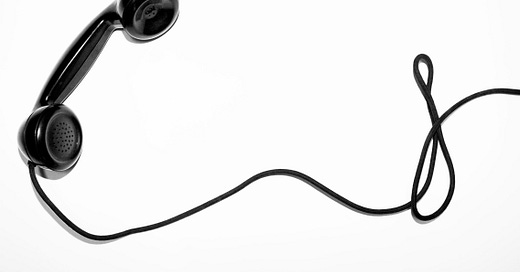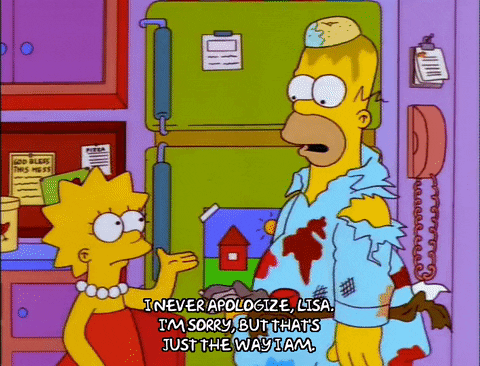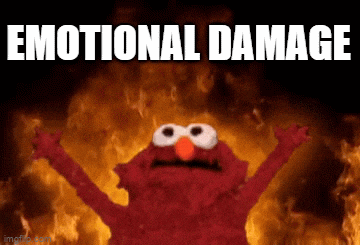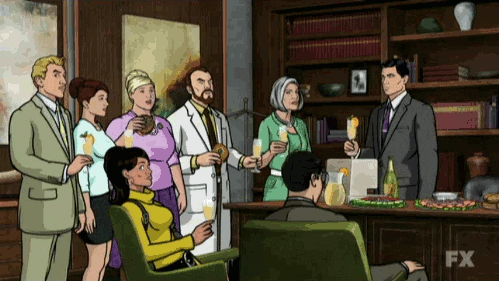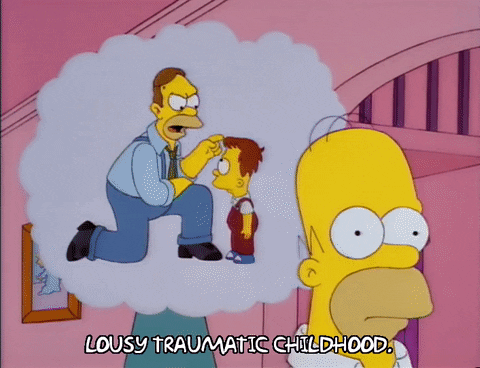OverFlow: Building a Bridge Over the Troubled Waters of Emotional Distance
It's not always enough to know in your heart that you love each other. You have to speak some things into existence. You have to show that you mean it.
OverFlow is what happens when I overthink, overflow, and over-everything. When my feelings have nowhere to go, I write about them.
A few days ago, my mother called me by mistake. She meant to talk to my sister and got me on the line instead. It took her a few minutes to recognize my voice — if she did at all. I needed to say “Hindi ako si Rica” for her to grasp the situation clearly.
Did I mention that she called in the middle of me editing a 2,500-word project? Or that it was right around dinnertime as I was racing to finish my work before my phone alarm signaled the end of my 8-hour work shift?
I should have been annoyed — especially when my brother joined the call to make small talk, lengthening my time away from editing — but you know what? It was refreshing. I loved it. And don’t tell them this, dear reader: I was in tears at one point.
Emotional Distance vs. Emotional Neglect
I’ve come a long way from not being able to name what happened to me as a child, but I still feel guilty when I say or type the words: emotional distance.
It’s not the same as emotional neglect or unavailability or even detachment. I knew I was loved and cared for and praised and brought up to the best of my parents’ resources and abilities. “I love you” was and still is a common thing my family members say to each other. But things weren’t perfect, and it took forever for me to figure out what was wrong.
After my 18th birthday, my father started having real talks with me. He’d parent me from time to time — most notably during our screaming match the night I told him I wanted to get married at 27 and he told me that I was too young — but even when he did, I felt like I could talk to him as an adult and he’d take me seriously.
I don’t think I’ve ever felt that way with my mother or either of my siblings. My mother still calls me her baby, which is cute and endearing, but not very encouraging when I need her to treat me like an adult. My siblings, I think, follow suit. I’m still the bunso — the youngest, the least experienced, the least grown up.
Again: I don’t feel neglected or ignored. There’s just this palpable distance between us that’s always been around. I used to think all families were like mine until I got married and was exposed to a completely different family dynamic.
The Harsh Conditions of Non-Verbal Communication
I’m not saying my family never talked. When we’re together, our conversations are filled with laughter and joy and nostalgia. We love being with each other and take hours to finish a meal because we keep telling each other stories. But we’re not a family that really goes on vacations as a group. We don’t call each other up unless there’s a reason to do so. We don’t hang out just to hang out.
Why are we like this? I’m too far away from the source of it all to know, I think. This is likely intergenerational trauma that I’ll never identify. Who knows if my mother learned it from her mother or her father? Maybe my father learned emotional distance from his parents, too, but he overcame it — at least in time to raise me.
Often I feel like a stranger in my family, simply because I wasn’t around for most of the events that shaped how we relate to each other. I was born during the epilogue of the story. Emotional distance and difficulty communicating played into this, too. If we were the type of family that talked more, maybe I’d have more early family stories memorized from repeated tellings.
Instead, my family used to make fun of my father for having the same set of stories to tell over family dinners — year after year. I never met him, but I can tell you about his childhood best friend. I still don’t go out on Good Friday because his cousin got into an accident when they defied tradition and went out during Holy Week as teens. I know all his stories and the lessons in them. He made sure to pass them on.
But the stories from the perspectives of my mother, sister, and brother are unknown to me — and that makes the distance grow ever larger. The feeling is harsher now, too, because my father is gone. They’re all I have left, and I don’t know how to relate to them the way I did with my father. I don’t even know if they hold resentment because I was his “favorite.”
Why Words Are Important
When my father got sick in 2019 and it was apparent that he didn’t much longer to live, I started getting bolder. I spoke up more. I don’t remember much from that time but I’m pretty sure I told my siblings to just talk to our father more often and say what they wanted to say. I didn’t want them to not have the chance to let him know how they felt.
The day my father got his cancer diagnosis, I came over for dinner and told him I loved him and that I’d support whatever he wanted to do. He said that he thought every one of his kids was in a good place, was successful, was no longer in need of help or guidance. He said he just wanted to make sure my mom was taken care of after he passed, and that after that, he’d be okay.
I don’t know if my siblings ever got to have that same talk with him. But in the months that followed, I told my father in every conversation we had that my siblings and my mom loved him very much — they just didn’t express it the way I did. I cried every single time, and so did he. See, we’re the only two water signs — and the only two crybabies — in our family.
When people tell me that my father must be watching over me from heaven, I always thank them politely. But deep inside, I hope he’s not with me. I hope he’s watching over my mother and my sister and my brother. I don’t need him around, but my family might. Because words were important to me and my father, we didn’t leave anything unsaid. I know he loved me and he knew I loved him, without any doubt.
In the middle of a global pandemic, I’d like that type of clarity in my relationships with the rest of my family. How do I heal the wounds of a trauma that didn’t even start with me? I didn’t even know where to begin.
Baby Steps vs. Big Gestures
Still, the answer started within me. 2020 has been a year of personal growth and enlightenment. These days I listen to myself more, I know who I am, and I trust my intuition. Putting my needs first has shown me what I needed to let go — and what I want to nurture.
So I call my mother from time to time. I’m still on Facebook to check on my sister, even though I loathe the social platform. My brother started a blog last September, and I’ve been encouraging him to write more — I even read his “puts food on the table” writing. My relationships with them are still not where I want them to be, but they’re getting better.
Before 2020, I thought I needed to make a grand gesture to show them how I’m not just their baby anymore. Maybe if I got a great job and told them about it, they’d take me more seriously. Maybe if I saved up and bought a house, they’d see me as an adult.
But now I know that baby steps work. After months of occasionally reminding them to stay in touch with each other and talking to them individually from time to time, that accidental call happened a few days ago.
My mother called me without warning, not as a response to a message I’d sent earlier and not to tell me something important. It was an accident, but she didn’t hang up. She got my brother on the call and we talked about unimportant things for more than 15 minutes. I felt, in that half-hour, that I’d gotten back that feeling I’d lost when my father died.
I got my family back. They knew who I was beyond being their baby. And I could talk to them as someone outside of my identity as a sister or a daughter.
I found my way home.
If you’ve enjoyed reading this or something else I’ve written, please consider buying me a coffee. ☕ Thank you!

